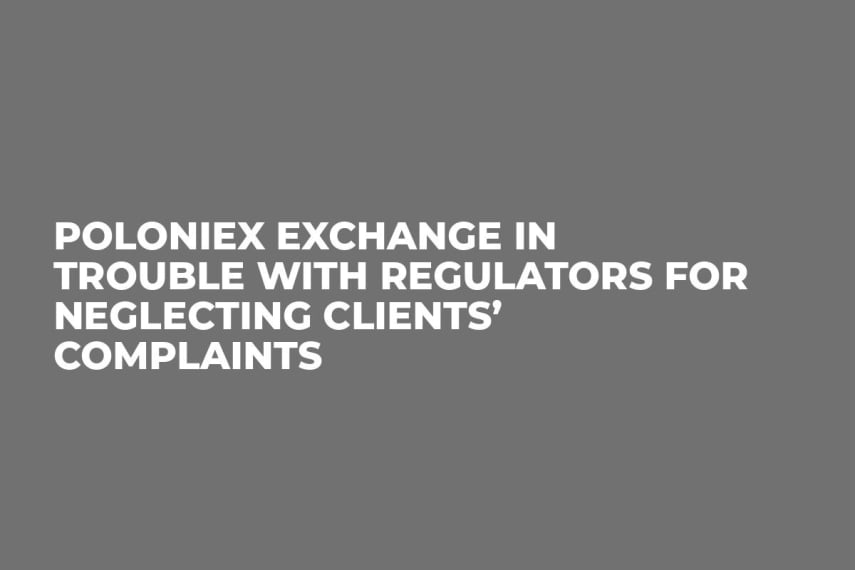
Currently, the Poloniex exchange is doing its best trying to follow all regulatory requirements, in particular, implementing all Know-Your-Customer (KYC) rules and Anti-Money Laundering (AML) procedures. It has been doing so since 2015, requiring customers to provide their name and country in order to conduct a withdrawal.
In order to take out coins for over $2,000 in 24 hours, customers would have to provide their address and phone number and if the amount to withdraw within 24 hours exceeded $7,000, they had to verify their ID.
KYC/AML getting harder, problems arise
In December last year, the exchange reps published info that these regulatory requirements were to become stronger making account owners verify their personal data and personality before the deadline so as to have the opportunity to continue trading on the platform.
Nevertheless, no deadline was specified, just mentioned that it would occur at the start of 2018.
Then Poloniex users began receiving emails in which the exchange support team asked them to verify their accounts within just two weeks.
However, after urgent verifications were made a lot of customers found that their accounts had been kept blocked.
Besides, the exchange’s terms of use state that Poloniex from time to time may send any information regarding their customers to state or federal agencies.
Customers keep complaining
Social networks, such as Reddit and Twitter, are reported to overflow with user complaints against Poloniex, saying that their accounts are frozen. They also claim that the exchange keeps ignoring their messages for a long while.
In early July 2018, one of Poloniex users launched a petition on change.org against the exchange, but so far only a few people have signed it.
US Department of Justice steps in
Recently, it has been reported in the media that Poloniex has gained the attention of regulators – the Investor Protection Unit (IPU) and the Delaware Department of Justice (DOJ).
The chief investigator of IPU emailed a hundred Poloniex users from Delaware asking them to email back if they have been having trouble with their accounts on the exchange recently.
Some of the users, reportedly, responded and now the DOJ has begun an investigation, refusing to disclose any details.
 Arman Shirinyan
Arman Shirinyan Alex Dovbnya
Alex Dovbnya Tomiwabold Olajide
Tomiwabold Olajide Caroline Amosun
Caroline Amosun